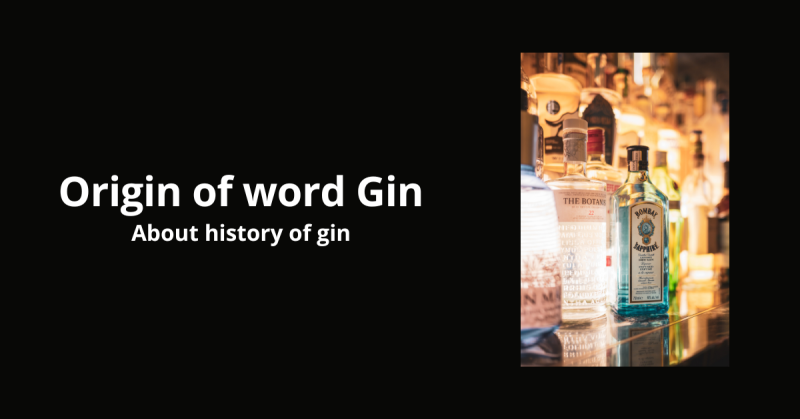You as reader our Gin Homepage probably likes gin, but have you ever stopped to wonder where the word “gin” comes from? In today’s article, we look into the history of the word “gin” and explore evolution over time. From its origins as a medicinal tonic to its modern-day use as a popular cocktail ingredient, the word “gin” has a rich and fascinating history.
The origins of the word “gin”:
The word “gin” has its roots in the Dutch word “jenever,” which means “juniper.” Juniper berries were originally used to flavor gin as a medicinal tonic, and the word “jenever” eventually became shortened to “gin” in English. The first recorded use of the word “gin” in English was in the early 17th century, and it quickly became associated with the juniper-flavored spirit that we know today.
The origins of gin can be traced back much further, however. The ancient Greeks and Romans used juniper berries for medicinal purposes, and the drink genièvre, which was made with juniper berries, was popular in the Low Countries (modern-day Belgium and the Netherlands) during the Middle Ages. It wasn’t until the early 17th century, however, that gin as we know it today really came into its own.
During this time, the Dutch were distilling genièvre and exporting it to England, where it gained popularity as a cheap and easily available alternative to brandy. The English began to distill their own gin, and it quickly became a popular drink for the working class. Gin’s popularity continued to grow, and by the 18th century it had become a staple of English culture.
The spread of the word “gin”:
As gin gained popularity in 🇬🇧 England, the word “gin” spread around the world. It was adopted in various languages, with slight variations in spelling and pronunciation. In 🇫🇷 French, for example, the word “gin” became “genièvre,” while in 🇪🇸 Spanish it became “ginebra.” In other languages, the word “gin” was simply incorporated in the dictionary.
The spread of the word “gin” was aided by the global trade routes that developed during the 19th and 20th centuries. Gin became a popular drink in many countries, and the word “gin” became synonymous with the juniper-flavored spirit. Today, the word “gin” is used in probably all languages and is recognized around the world as the name for this popular spirit.
Conclusion
In conclusion, the word “gin” has a rich and fascinating history that is closely tied to the iconic spirit that bears its name. From its origins in the Dutch word “jenever” to its adoption and evolution in various languages around the world, the word “gin” has a long and storied past.
Today, the word “gin” is recognized around the world as the name for this popular and enduring spirit. Whether you prefer a classic gin and tonic or a more experimental cocktail, there’s no denying the enduring appeal of this versatile and beloved drink.
